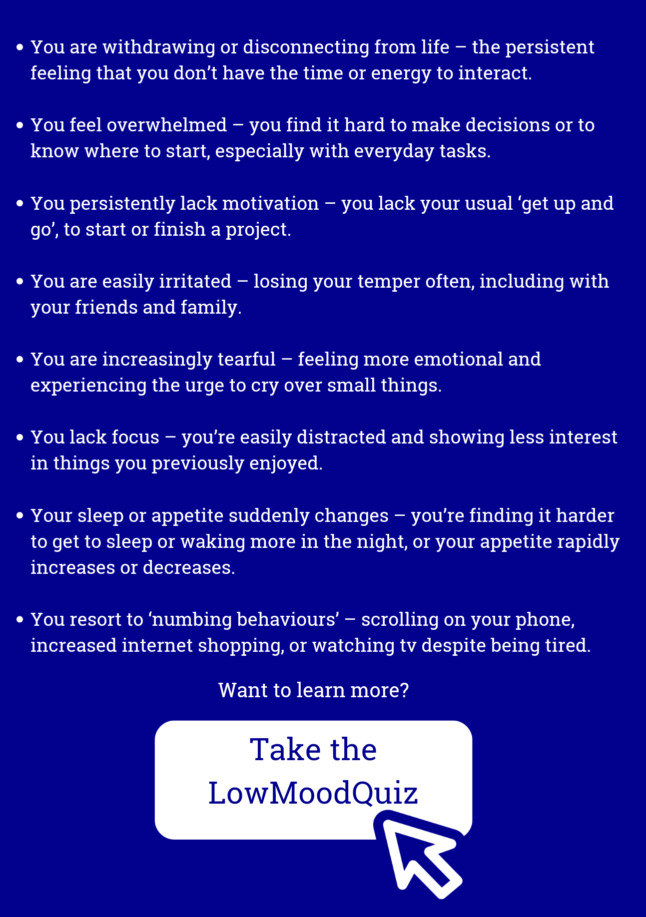Mental health: what are the warning signs international residents should look out for?
Even today, mental health issues are too often subject to stigma and taboos. If you’re living or working abroad, you can face huge challenges and not know where to turn for help or support.

The Covid-19 pandemic has shone a light on some issues of stress, loneliness and depression. But it should not need a global crisis to increase awareness of and create more open discussion about such a serious issue.
The Local has partnered with AXA - Global Healthcare to examine how and why people living international lives should pay special attention to their mental health.
Trouble adjusting? You’re not alone
Following a career overseas as an international worker can be exciting and challenging in equal measure. Multinational workforces are now the norm in most global major cities and businesses increasingly view diversity as one of their biggest strengths.
Yet many people struggle to adapt as they face up to dealing with culture shock, new ways of working, a different language, and being distant from friends and family. If this sounds familiar, you’re far from alone.
One in five employees surveyed in AXA’s 2020 World of Work research¹ experienced mind health difficulties while working away from home. Half said that the biggest impact on their mental health came at the start of their time in a new location.
Mental health challenges faced when working away from home can have a number of consequences, such as work performance issues, increased risk of illness and organizational difficulties. In some cases, this can lead to assignments ending early and missed experiences.
Working away from home always comes with its own series of challenges, without mental health difficulties compounding the situation. This is why it’s so important not only to monitor how you’re doing, but also be able to have meaningful conversations with your manager if you’re struggling.
This is not always possible. Around two thirds (64 percent) of employees surveyed agreed that their employer could do more to support their mental health and 50 percent said that their employer only offers support in response to a crisis¹. In taking a new position overseas, it’s worthwhile asking what support a potential employer can offer you.
With AXA’s Mind Health service, you can speak to a psychologist from wherever you are in the world².
Know the warning signs
While everybody responds to stress and difficulties differently, there are common signs that you may be struggling. If you experience a number of the following over the space of a few weeks, it’s worth contacting a health professional to talk.
Reflect, reevaluate, recharge
It could be worth monitoring your mood and observing whether there is a discernible dip, or an increase in negative feelings.
There are a number of free apps and online tools, including AXA’s Low Mood and Anxiety Quizzes, that can allow you to track your daily mood over the space of weeks or months. They can also allow you to identify triggers for sudden dips in mood, or anxiety.
If the results of your mood tracking raises concerns about your mental health, your insurer will often have support services to help you rest, recharge and heal.
AXA, a global leader in health insurance, has multiple levels of cover to suit you at different stages of your life, giving you access to local healthcare professionals and facilities. If you struggle with the local language, and/or prefer to speak to a doctor from where you are, their Virtual Doctor service can do everything from consultations, to prescriptions and referrals to specialists if you need further treatment³.
Mental health is as important as our physical health, and it deserves the same attention. If you’re in an environment that may lead to increased stress and mental health challenges, it’s worth considering how you can take the best care of yourself and make the most of your opportunities abroad.
Understand the range of insurance options that can help you take care of your health with AXA
1. Research conducted in April 2020 by Savanta. A total of 543 HR decision makers (108 in North America, 105 in the UK, 51 in France, 54 in Germany, 111 in China, 55 in Hong Kong and 59 in Singapore) and 568 non-native assignees (107 in North America, 113 in the UK, 57 in France, 57 in Germany, 116 in China, 60 in Hong Kong and 65 in Singapore) were surveyed.
2. The service provides you with up to 6 sessions with a psychologist, per mind health concern, per policy year.
3. Appointments are subject to availability. You do not need to pay or claim for a consultation but you will be charged for the cost of the initial phone call when using the call back service. Telephone appointments are available 24/7/365 and call-backs are typically within 24 hours. Video appointments are available between 08.00 and 00.00 UK time, Monday to Friday. Video appointments in German are available between 08:00-20:00 CET, Monday to Friday. Prescriptions are available if medically necessary and are subject to your location.
This article was produced by The Local Creative Studio and presented by AXA.
AXA Global Healthcare (EU) Limited. Registered in Ireland number 630468. Registered Office: Wolfe Tone House, Wolfe Tone Street, Dublin 1. AXA Global Healthcare (EU) Limited is regulated by the Central Bank of Ireland.
AXA Global Healthcare (UK) Limited. Registered in England (No. 03039521). Registered Office: 20 Gracechurch Street, London, EC3V 0BG, United Kingdom. AXA Global Healthcare (UK) Limited is authorised and regulated in the UK by the Financial Conduct Authority.
This content was paid for by an advertiser and produced by The Local's Creative Studio.


Join the conversation in our comments section below. Share your own views and experience and if you have a question or suggestion for our journalists then email us at [email protected].
Please keep comments civil, constructive and on topic – and make sure to read our terms of use before getting involved.
Please log in here to leave a comment.